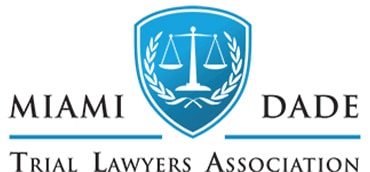Curious about what a fair settlement for TBI entails? This article will explain how settlements are calculated, what factors impact the amount, and the steps to secure the compensation you deserve.
Key Takeaways
- Traumatic brain injuries (TBIs) can lead to severe and long-lasting effects, necessitating comprehensive medical care and significantly impacting quality of life.
- Settlement amounts for TBI cases depend on various factors such as injury severity, medical expenses, lost wages, and pain and suffering, with higher compensation typically awarded for more severe injuries.
- The legal process for claiming TBI compensation involves filing lawsuits, negotiating with insurance companies, and sometimes going to trial, making the expertise of a specialized TBI lawyer crucial for maximizing potential settlements.
Understanding Traumatic Brain Injuries
A traumatic brain injury (TBI) occurs when an external physical force impacts the brain, leading to significant damage. Common causes include accidents, falls, and violent incidents, often resulting in primary brain injuries at the moment of impact and secondary injuries that develop over time. TBIs, including mild traumatic brain injuries, are a leading cause of disability and death, profoundly affecting a person’s life and necessitating lifelong care and support in a traumatic brain injury case.
Grasping the nature of TBIs helps in understanding the discussions on settlements and legal processes.
Types of Traumatic Brain Injuries
Traumatic brain injuries can be classified into two main types: closed-head injuries and penetrating brain injuries. Closed head injuries, or non-penetrating TBIs, occur when external forces cause the brain to move within the skull without breaking it, leading to significant internal damage.
Mild traumatic brain injury, such as concussions, can significantly impact settlement amounts and long-term health outcomes. It is crucial to address symptoms and ensure proper recovery before returning to activities.
On the other hand, penetrating brain injuries happen when an object breaches the skull, directly damaging the brain tissue. Recognizing these differences helps in understanding the unique implications for treatment and recovery in each case.
Symptoms and Long-Term Effects
The immediate symptoms of a TBI can vary widely, including headaches, dizziness, confusion, and fatigue. More severe injuries may result in a lack of balance and ongoing fatigue. These symptoms can appear immediately or develop over time, so seeking medical attention is important even if initial signs seem minor.
The long-term effects of severe TBIs can be particularly devastating, leading to significant cognitive deficits and the need for ongoing rehabilitation. Brain injury victims may experience permanent disabilities, such as lifelong post-concussion syndrome or permanent cognitive impairment. These severe injuries can alter every aspect of a person’s life, from their ability to work to their personal relationships and overall quality of life.
Key Factors Influencing TBI Settlement Amounts
Several key factors influence the average settlement amounts for traumatic brain injury settlements, including the severity of the injury, medical expenses, lost wages, and pain and suffering. These factors help determine what constitutes a fair settlement.
The complexity of each case and the long-term impact of the injury can significantly affect the compensation awarded.
Severity of the Injury
The severity of a traumatic brain injury (TBI) directly impacts the traumatic brain injury settlement amount. More severe injuries typically result in higher compensation due to their extensive impact on the victim’s life. For instance, brain injury settlements for severe TBIs resulting from car accidents can reach up to $1.6 million in states like California.
In comparison, settlements for mild TBIs from slip and fall incidents generally range from $700,000 to $1.2 million, depending on various factors. Expert witnesses are vital in establishing the injury’s severity and implications, significantly influencing settlement discussions.
Medical Expenses and Future Care Costs
Medical expenses, both current and future, are critical components of TBI settlement amounts. These include costs for surgeries, rehabilitation, and ongoing medical care. Courts consider immediate expenses and potential long-term impacts when evaluating damages in brain injury cases.
Expert testimonies offer insights into the medical implications of a TBI, aiding in quantifying damages and ensuring all potential costs are considered during settlement negotiations.
Lost Wages and Earning Capacity
Lost wages and diminished earning capacity significantly contribute to the overall value of a TBI settlement. A traumatic brain injury can drastically alter an individual’s ability to work, affecting their financial reality. Evaluating lost wages involves considering both past earnings and future earning potential affected by the injury.
Economic expert testimony and salary surveys are often used to assess the impact of lost wages, ensuring that the settlement reflects the true financial losses suffered by the victim.
Pain and Suffering
Pain and suffering, along with the loss of enjoyment of life, are key non-economic damages considered in TBI settlements. These damages reflect the intangible impacts on the victim’s quality of life and are often calculated by multiplying economic losses by a factor of 1.5 to 5.
The severity of the injury, physical pain, and emotional distress are carefully considered to ensure compensation reflects the victim’s personal losses.
Contact us today for your free & confidential case review. Our team will help you get the compensation that you deserve.
Calculating a Fair Settlement for TBI
Calculating a fair settlement for a traumatic brain injury involves a meticulous process of gathering evidence, assessing both economic and non-economic damages, and leveraging expert testimonies. Proper documentation and detailed calculations ensure that the settlement covers all long-term financial needs.
Gathering Evidence
Comprehensive evidence is crucial for building a strong TBI case. This includes medical records, accident reports, and any other relevant documentation that can support the victim’s claims. The quality and timeliness of the collected information are vital for the success of personal injury claims.
Given the initial invisibility of some injuries, proving liability can be complex, making effective evidence collection even more critical.
Assessing Economic and Non-Economic Damages
Assessing economic and non-economic damages is a fundamental step in calculating a fair TBI settlement. Economic damages include financial costs associated with the injury, such as medical bills, lost wages, and reduced earning potential. Non-economic damages, on the other hand, cover pain and suffering, emotional distress, and loss of enjoyment of life.
Supporting evidence like medical records and documentation of lost wages is essential to accurately assess these damages.
Role of Expert Witnesses
Expert witnesses play a critical role in TBI cases by providing credible testimony regarding the medical and psychological effects of brain injuries. Their insights can significantly strengthen the victim’s claims, ensuring the compensation awarded reflects the injury’s true impact.
Legal Process for TBI Settlements
Navigating the legal process for TBI settlements involves several key steps, from hiring an experienced personal injury lawyer to filing a personal injury lawsuit, negotiating with insurance companies, and potentially going to trial. Knowing these steps is crucial for securing a fair settlement.
Filing a Personal Injury Lawsuit
 The first step in pursuing a TBI settlement is establishing liability for the injury. This involves gathering evidence to show negligence and support the claim if another party is responsible for the TBI, a personal injury lawsuit can be initiated to seek compensation. Proving liability can be complex, especially since TBIs can initially be invisible, making thorough evidence collection crucial in a brain injury lawsuit.
The first step in pursuing a TBI settlement is establishing liability for the injury. This involves gathering evidence to show negligence and support the claim if another party is responsible for the TBI, a personal injury lawsuit can be initiated to seek compensation. Proving liability can be complex, especially since TBIs can initially be invisible, making thorough evidence collection crucial in a brain injury lawsuit.
Negotiating with Insurance Companies
Effective negotiation with insurance companies is vital for securing fair TBI settlements. This often involves preparing a comprehensive demand letter outlining all claims based on gathered evidence. Documentary evidence like medical records and lost wages is essential during negotiations.
It is advisable to be cautious about accepting initial settlement offers from insurers, as they may not fully cover the long-term financial needs.
Potential for Trial
While most TBI cases settle, some may go to trial where outcomes are determined by a judge or jury based on the case’s complexity. The trial process can vary in duration, taking anywhere from a few days to weeks, depending on the specifics of the case.
The uncertainty and potential for varied outcomes make strong legal representation crucial throughout the process.
Working with a Traumatic Brain Injury Lawyer
Hiring a specialized TBI lawyer is crucial for navigating the complexities of the legal system and maximizing the chances of receiving fair compensation. A TBI lawyer assists in researching case laws, building a strong argument, and providing expert consultation to support the victim’s claims.
Expertise in Personal Injury Law
A knowledgeable TBI attorney possesses the skills to navigate complex legal processes. Settling early with an insurance company can result in missing out on long-term financial support, making the expertise of a TBI lawyer invaluable. An experienced TBI lawyer can help avoid lowball offers from insurance companies, ensuring that the settlement covers all long-term needs.
Maximizing Compensation
Hiring a TBI lawyer can significantly enhance the likelihood of receiving fair compensation for TBI-related damages. Their expertise in personal injury law equips them to navigate complex legal issues and negotiate effectively with insurance companies.
Comprehensive evidence, including medical records and expert testimonies, is essential for building a strong case and securing the best possible settlement.
Case Study: Severe TBI from Car Accident
A 35-year-old woman received a $5 million settlement after suffering a severe brain injury in a collision with a semi-truck. The case involved potential negligence due to warnings against driving in fog conditions, highlighting the importance of proving liability.
Case Study: Mild TBI from Slip and Fall
A 56-year-old man secured over $1 million after suffering a mild traumatic brain injury due to a fall caused by poor drainage conditions. The case underscores the importance of proving negligence by the property owner to recover significant compensation.
Frequently Asked Questions
What are the main factors that influence TBI settlement amounts?
The main factors influencing TBI settlement amounts are the severity of the injury, medical expenses, lost wages, and pain and suffering. Each of these elements significantly impacts the total compensation awarded.
How are economic and non-economic damages assessed in TBI cases?
What role do expert witnesses play in TBI settlements?
Hiring a specialized TBI lawyer is crucial as they possess the necessary expertise to manage complex legal processes and secure fair compensation for victims, addressing both immediate and long-term needs effectively.
What are some real-life examples of TBI settlements?
Significant compensation can be achieved in TBI cases, as demonstrated by a $5 million settlement for a severe TBI resulting from a car accident and over $1 million for a mild TBI from a slip and fall. These examples highlight the importance of the circumstances surrounding the injury.
Last updated Wednesday, October 23rd, 2024











